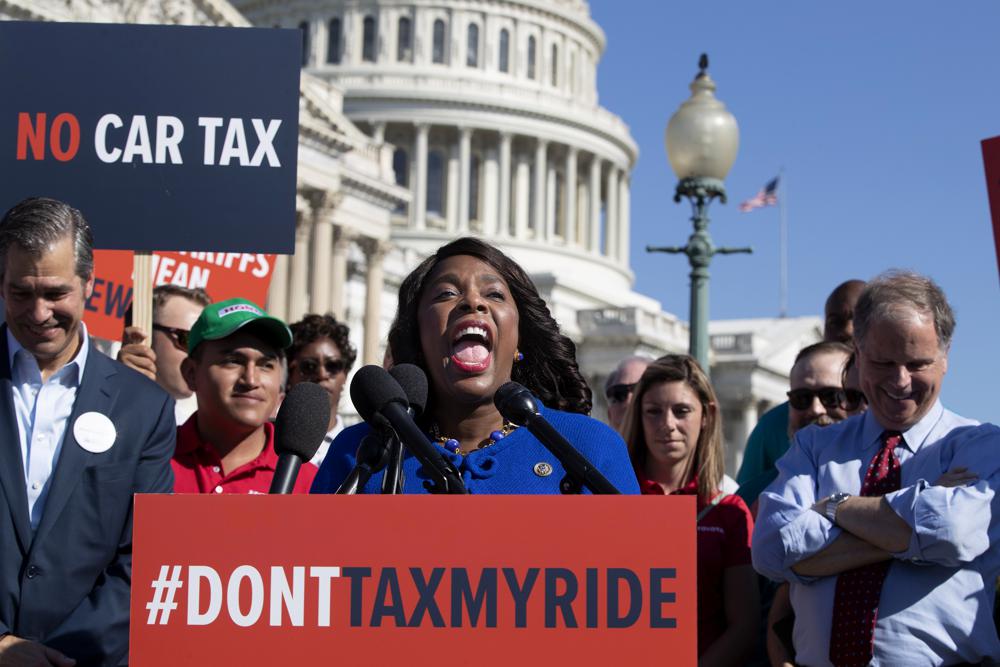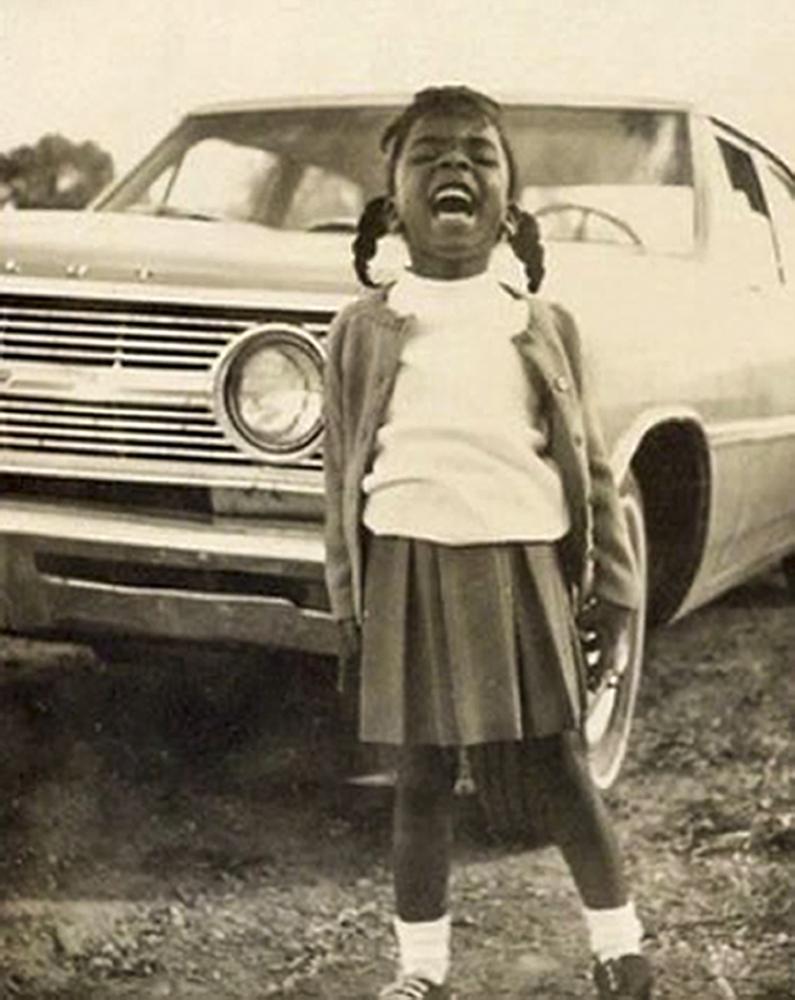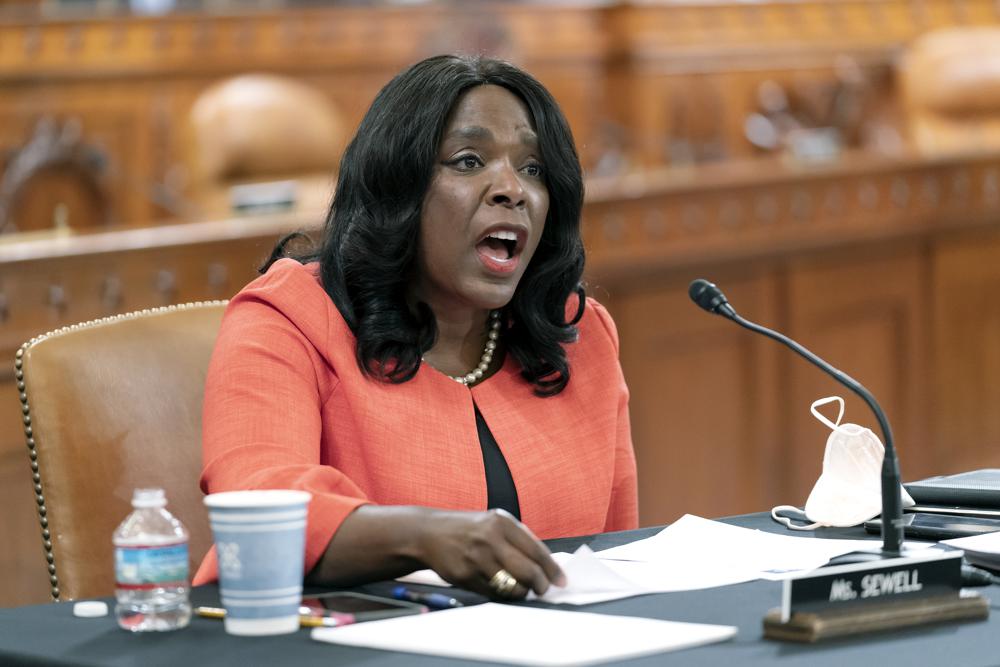Across the bridge: Alabama Rep. Terri Sewell carries torch for voting bill
The fight of Terri Sewell’s parents’ and teachers’ and neighbors’ generation suddenly became her own
Growing up in the civil rights epicenter of Selma, Alabama, Terri Sewell heard all the stories.
About the police violence during the “Bloody Sunday” march at the Edmund Pettus Bridge. About the beating of the young man who went on to become Rep. John Lewis. About the blood that was shed and the lives undone to ensure Black people would finally have the right to vote when the Voting Rights Act of 1965 became law.
As she set out for the Ivy League, law school and eventually Congress, Sewell focused on the civil rights battles to come. Income inequality, she thought, would be her work for the new era.

Then the Supreme Court gutted the Voting Rights Act. And the fight of her parents’ and teachers’ and neighbors’ generation suddenly became her own.
“Never in a million years did I think that I — 57 years later — would have the cause for which John Lewis and those foot soldiers marched become my cause, too,” Sewell said in an interview.
“We fought that. They were bludgeoned on a bridge for the right to vote — the equal right of every American to vote,” she said. “But so it is.”
The Democratic congresswoman’s journey from rural Selma to the halls of Congress offers a vivid portrait of the nation’s progress toward ending voter discrimination, but also of accumulating setbacks in the long campaign for voting rights.
Her work trying to restore the Voting Rights Act is testing the resolve of a nation that celebrates its civil rights heroes of the past, but cannot muster support in Congress to update what has historically been a popular, bipartisan law.
Since the Supreme Court in 2013 struck down part of the law, many states free from federal oversight have been imposing new rules, changing polling times and even installing limits on handing out water for those waiting in line — changes that voter advocates say could make it more difficult to cast ballots in this year’s elections.
Wade Henderson, interim president of the Leadership Conference on Civil and Human Rights, said of Sewell: “She’s emerged as someone who is uniquely qualified to play the role that history seems to have given her.”
Elected in 2010 as the first Black congresswoman from Alabama, Sewell arrived at the Capitol about as backbench as it gets, among a new handful of Democrats in a Republican tea party wave. That was a tough start for the first Black valedictorian at Selma High School and someone who can boast of attending college with both Obamas, Michelle at Princeton and the future president at Harvard Law.
Coming from a long line of “preachers and teachers,” she confides she really wanted to be an actor, but recalled her late father’s admonitions: “We’re not eating cornflakes for dinner for you to be majoring in theater at Princeton University.”

Her family’s church in Selma was the historic Brown Chapel AME Church, the starting point for the historic voting rights marches and the place that Lewis — the future congressman, who died in 2020 — and others would return years later to commemorate “Bloody Sunday.” Her mother was the city’s first Black city councilwoman.
“For me, growing up in Selma, Alabama, I didn’t have to read in the history books about these amazing foot soldiers,” said Sewell, who is 57.
Many of them were “ordinary Alabamians,” she said, and once the marches were over and the voting rights bill became law, “They went on with their lives, and many of them were my neighbors and my church members.”
In Congress, Sewell put her public finance law background to work trying to preserve the historic civil rights sites in her district, which stretches across the state’s Black Belt to her current home in Birmingham. One bill she steered into law awarded the Congressional Gold Medal to the four Black girls killed in the 1963 bombing at the city’s 16th Street Baptist Church.
The region has been so underserved that when Selma the movie opened in 2014, her mom pointed out there was no movie theater open in town for a screening. Residential yard sewage remains a stubborn problem because of lagging public investment in wastewater systems.
“We can’t just come to Selma and walk across that bridge and keep on walking,” she said ahead of next month’s anniversary of the marches. “It’s a city that is dying on the vine, a city that needs economic revitalization.”
Two years after Sewell took office, the Supreme Court’s stunning decision to reject the Voting Rights Act’s “preclearance” formula governing state election changes thrust the congresswoman to the forefront alongside Lewis to try to salvage the law, which had been seen as among the most enduring achievements of the Civil Rights era.
Since the court’s decision, every session of Congress she has introduced legislation, now called the John R. Lewis Voting Advancement Act. It failed in the Senate in January, part of a broader bill halted by a Republican filibuster and two Democrats unwilling to change the rules for passage.
For Sewell, it was a reminder of how the battle of the earlier civil rights generation has swiftly, intractably become her own.
“That’s very much part of the experience of Black leaders,” said Sherrilyn Ifill, the president and director-counsel of the NAACP Legal Defense and Educational Fund.
“If you are a Black person in leadership, and you care about and love your community, the circumstances in which Black people live in this country will compel you, sooner or later … to become a civil rights activist.”

Alabama is again at the center of the nation’s voting rights debate. Shelby County, not far from Selma, brought the court case, in which Chief Justice John Roberts writing for the conservative majority argued, “Our country has changed in the past 50 years.”
The Roberts court will hear another Alabama case, expected later this year. The state, where one in four voters is Black, is asking the high court to reject the creation of a second, mostly Black congressional seat, despite a lower court’s finding that having just one Black-majority district out of seven “violates federal law.”
Sewell said the country’s history is filled with “progress and regression,” and just as it took an earlier generation years to pass the Voting Rights Act, she is determined to press on as long as it takes to preserve it.
Doug Jones, the former Alabama senator who as a U.S. attorney prosecuted Klansmen in the 16th Street Church bombing, said of the congresswoman’s work: “When you grew grow up in Selma, in the shadow of the Edmund Pettus Bridge, you know, that never leaves you.”
Have you subscribed to theGrio podcasts, Dear Culture or Acting Up? Download our newest episodes now!
TheGrio is now on Apple TV, Amazon Fire, and Roku. Download theGrio today!
The post Across the bridge: Alabama Rep. Terri Sewell carries torch for voting bill appeared first on TheGrio.
from TheGrio https://ift.tt/zt64nTP
No comments: